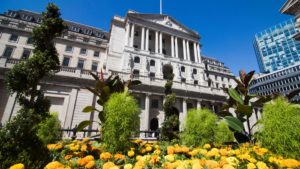
The latest figures released this morning show that UK inflation defied expectations last month by holding steady, a development that could prompt the Bank of England to look at interest rate cuts sooner than previously anticipated.
According to data from the Office for National Statistics, the annual rate of price growth in the UK economy remained unchanged in January at 4 per cent.
This figure fell short of predictions from City analysts, who had anticipated a rise to 4.2 per cent. The Bank of England’s forecast for CPI inflation in January was 4.1 per cent, as indicated in its latest economic forecasts released earlier this month.
Core inflation, which excludes the more volatile energy and food prices, also remained stable at 5.1 per cent in the 12 months leading up to January, the same rate recorded in December. On a month-on-month basis, CPI experienced a 0.6 per cent decrease in January.
The primary driver behind the monthly change was an increase in gas and electricity charges, while the largest downward contribution came from furniture and household goods, as well as food and non-alcoholic beverages.
Chancellor Jeremy Hunt commented, “Inflation doesn’t follow a perfect trajectory, but the plan is on track,” adding that the Bank of England projects the rate to decrease to the 2 per cent target “in a matter of months”.
Despite this, Britain still maintains the highest inflation rate among its counterparts, with the US and eurozone rates standing at 3.1 per cent and 2.8 per cent respectively. This trend is forecasted to persist by the Organisation for Economic Co-operation and Development (OECD), a consortium of affluent economies.
The moderation in headline consumer price index inflation last month was attributed to easing price hikes for household goods and food items. A 5 per cent increase in average household energy bills in January offset price declines in other products.
Grant Fitzner, chief economist at the ONS, stated, “The prices of gas and electricity rose at a faster rate than last year due to the energy price cap increase, while the cost of second-hand cars saw an uptick for the first time since May.”
He added, “Offsetting these, prices of furniture and household goods decreased compared to a year ago, and food prices dropped on a monthly basis for the first time in over two years.”
The stagnant inflation adds to the evidence suggesting that the UK economy is cooling down, potentially paving the way for the Bank of England to adjust its monetary policy.
Paul Dales, chief UK economist at consultancy firm Capital Economics, expressed that the rise in used car and energy prices in January is unlikely to persist, foreseeing inflation dropping below 2 per cent by April.
“This would significantly increase the likelihood of the BoE implementing interest rate cuts, perhaps as early as June,” he remarked.
Economist Thomas Pugh from RSM UK echoed similar sentiments, stating, “Inflation in the UK economy is evidently easing more rapidly than anticipated, and the surge in prices during the pandemic and energy crisis will soon be a distant memory.”
He continued, “We anticipate inflation falling below 2 per cent as soon as April, which would create ample room for an interest rate cut in the spring or early summer.”
The central bank remains concerned that sustained wage growth and escalating services prices will keep CPI inflation above the 2 per cent target in the long term. Recent figures revealed that private sector wages increased by 6.2 per cent over the past year, surpassing analysts’ expectations.
Services inflation climbed to 6.5 per cent last month, albeit lower than what the Bank of England had predicted. Core inflation reached 5.1 per cent.
At the outset of this year, financial markets foresaw the Bank reducing the UK base rate six times in 2024, with the first cut expected around May. Prior to this morning’s release, three rate cuts were anticipated, commencing in June.
Having raised the UK base rate to a 16-year high of 5.25 per cent from a record low of 0.1 per cent between December 2021 and August 2023, the Bank of England responded to inflation hitting a 41-year high of 11.1 per cent, marking the swiftest increase since the 1980s.
For the past two years, the UK economy has been hampered by a blend of high inflation eroding consumer spending power and the Bank of England raising interest rates to mitigate price pressures.
Tomorrow, the ONS is expected to release figures indicating a 0.1 per cent contraction in GDP in the three months leading up to December 2023, suggesting that the UK may have slipped into a technical recession last year. Nevertheless, growth prospects for this year appear promising, buoyed by rate cuts and robust wage growth.
Read more:
UK inflation remains steady at 4% bolstering hopes for interest rate cut








